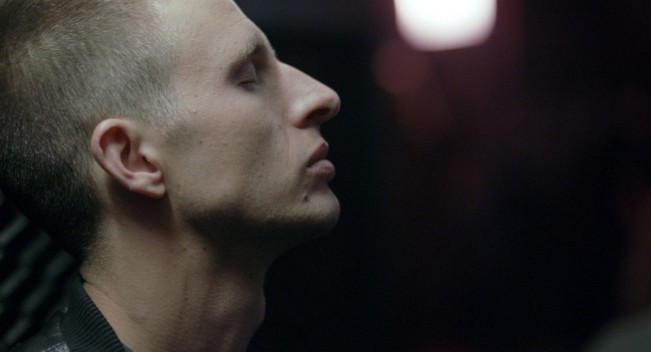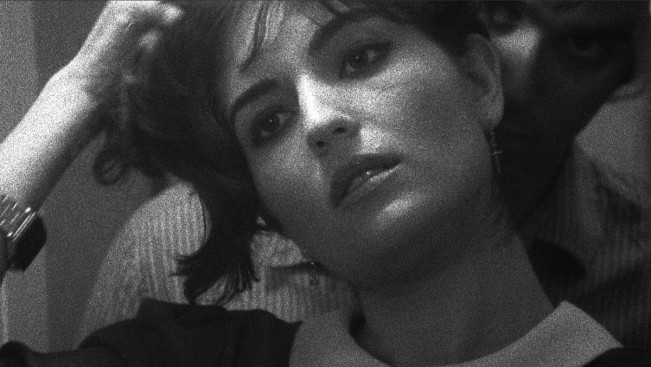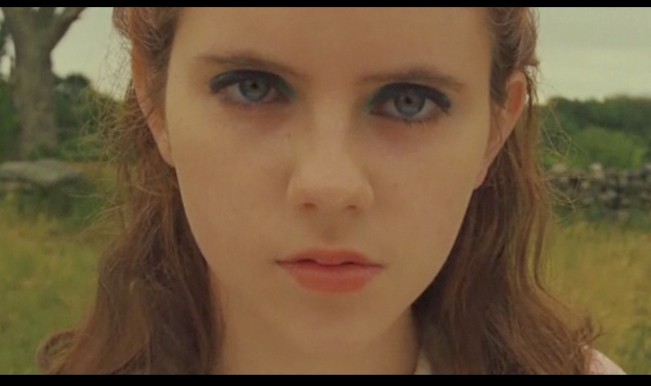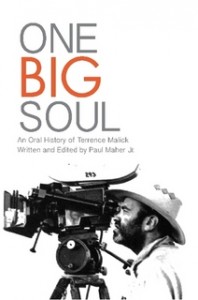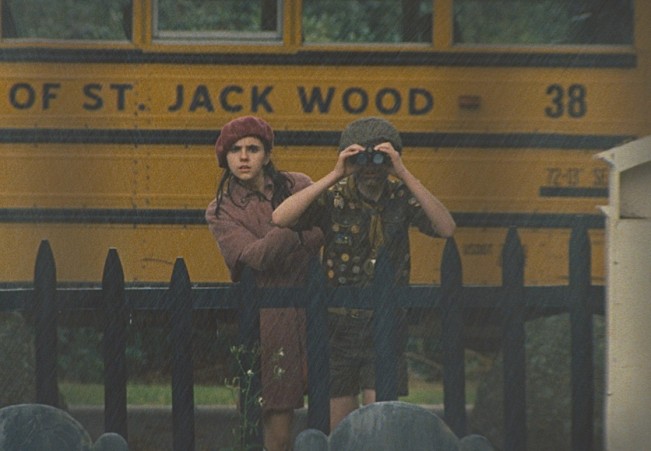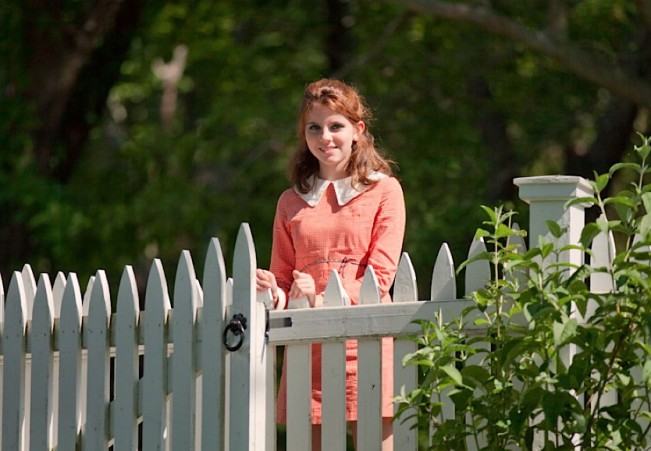Randall Poster On The Surprising Success Of The Moonrise Kingdom Soundtrack
Posts Tagged ‘Moonrise Kingdom’
Randall Poster On The Surprising Success Of The Moonrise Kingdom Soundtrack
Tuesday, July 10th, 2012Pitchfork Talks To Music Supervisor Randall Poster About The Aural Soundscapes Of Wes Anderson, Harmony Korine And Skrillex
Wednesday, June 27th, 2012Emerson Is Over The Moon For Moonrise Kingdom’s Punctilious Miniaturism
Sunday, June 24th, 201242 Unseen Set Photos From Moonrise Kingdom
Monday, June 18th, 2012Pride’s Friday 5: June 7, 2012
Friday, June 8th, 20121. Oslo, August 31
Joachim Trier‘s 2006 debut, Reprise, was one of the past decade’s most memorable first features, and his second, Oslo, August 31 is a ringing astonishment, lyrical, precise and haunted. I’ve seen it several times in the past year and still feel like I should see it again before writing about it at any length. (I went so far as to get the UK Region 2 DVD: it’s surprising how quickly the prices are slashed for arthouse titles from Britain.) Subjective, serene, sublime: I like it a lot.
From the U.S. synopsis, which of course doesn’t encapsulate the textures and rhythms of this beautiful film: “Anders (Anders Danielsen Lie) will soon complete his drug rehabilitation in the countryside. As part of the program, he is allowed to go into the city for a job interview. Taking advantage of the leave, he stays in the city, drifting around, meeting people he hasn’t seen in a long time. At the age of 34, Anders is smart, handsome and from a good family, but deeply haunted by all the opportunities he has wasted, and the people he has let down. For the remainder of the day and long into the night, the ghosts of past mistakes will wrestle with the chance of love, the possibility of a new life and the hope of a different future by the time morning arrives.” The trailer gives a glimpse of Trier’s visual style as well as Lie’s complex performance.
In Los Angeles, Oslo, August 31 is held over at Laemmle’s Monica in Santa Monica and in New York, the IFC Center.
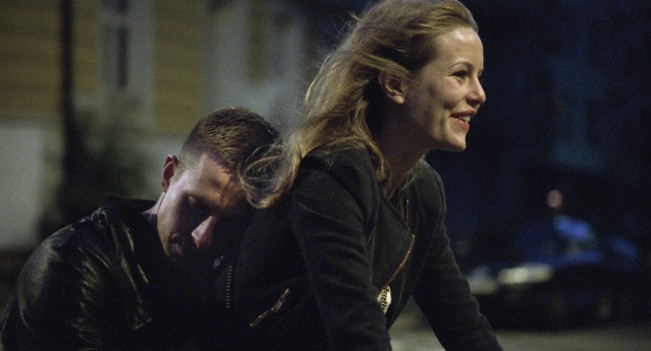
2. The Color Wheel
“Have you ever sat in a pool and looked at the ocean?” In writer-producer-director Alex Ross Perry‘s The Color Wheel, a single sentence spoken by a compulsively verbal character seems at first affectedly literary, or maybe what would make for a decent Steven Wright line, but in the end turns out to encapsulate the entire movie, lyrically, obliquely, yet just so.
The Color Wheel propels twentysomething J. R. (co-writer Carlen Altman) and her younger brother Colin (Perry) onto the road to recover her minimal belongings from an ex-professor-ex-lover (Bob Byington). The rugged black-and-white cinematography is by Sean Price Williams, who shot Frownland for director Ronald Bronstein, perhaps the reigning king of discomfiture as filmmaker as well as actor (see: the Safdies’ Daddy Longlegs.)
Any book scout worth his dust, worth the dollars he’s spent on donuts earned from the dimes gained foraging in literary artifacts’ past would quickly recognize the typeface from the main credits of The Color Wheel as not being kooky-campy nostalgic but instead a variation on a typeface like Caslon Bold from the Bantam Philip Roth paperbacks including “Portnoy’s Complaint” and “Goodbye Columbus.” There are other oddities and quiddities that would suggest a study of Woody Allen‘s credit sequences, but never mind. The Color Wheel was 2011’s second low-boil sister-brother intrigue, after Aaron Katz‘s Cold Weather, but those two films have little in common beyond apparent modesty and anecdotal precision. Ross is working in a more needling vein, joining filmmakers like Bronstein and the Safdies, as well as the Duplasses and Lena Dunham, who assemble stories from one little death after another, an emerging cinema of quotidian mortification. (It’s starting to seem as if South Korea’s Hong Sang-soo has unknowingly fathered a new nation of American whelps.) And Jerry Lewis: there’s another shriekingly ready influence. How many testosterone-filled fathers can one film have?
Ross and Altman seem like brother and sister from their shared capacity to be annoying. Altman plays J. R. as a cutesy-annoying “Ein-steeeen,” a woman who would wear a “Who Farted?” t-shirt (with cocked “A”) and no comment is offered (or desired). Perry affects a post-Michael Cera whine to his voice, capturing less a generational intonation than spite that comes out in explosions of seeming acquiescence that is in fact unrelenting verbal violence. His jokes can be funny, but they’re more like dares: I dare you to laugh at this terrible shit tumbling from my mouth, fully formed. The slapstick fuckery of these two disdainful siblings could well be accompanied by gamelan and gong.
“Will you fasten my shirt, asshole?”; “Nooo, I look barely legal in a mature kind of way.” Of course, the cracks pass muster: they’re brother and sister, it’s the mussed surface of biological likeness. J. R.’s mouthed “Fuck you”s to her brother and her really dumb put-on voices are just latter-year mudslinging and hair pulling. There’s room, too, for trip-and-stumble pratfalls, as well as a wealth of passive-aggressive and outright aggressive barbs: “You’re not qualified to teach, you’re barely qualified to learn”; “You just have such a kooky sense of humor”; “I don’t pinky-swear, you know that, it’s a barbaric practice”; and “I didn’t used to have all this drink spilled on me.”
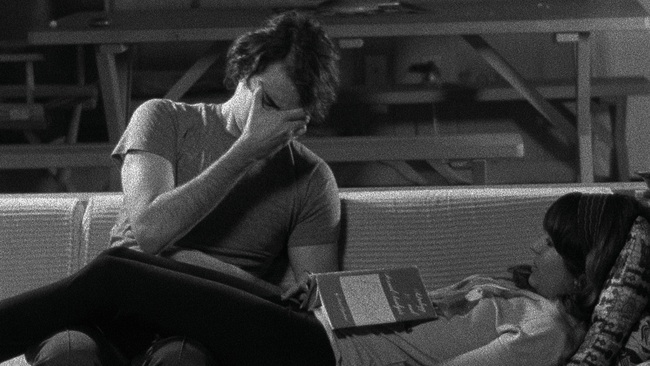 The 16mm black-and-white of the movie sets itself apart from this digital moment, not directly in league with a hulking generational epic like The Mother and the Whore, but more toward, yes, the Philip Roth of that 1968-1972 era. Him again. The Color Wheel could be Phillip Roth’s survivor male brutally mingled with suicide Jean Eustache’s self-shadow play. (That constitutes fair ambition.) Ross’ protagonist could easily be the Roth who bothered to slash every garment in Claire Bloom’s walk-in closet.
The 16mm black-and-white of the movie sets itself apart from this digital moment, not directly in league with a hulking generational epic like The Mother and the Whore, but more toward, yes, the Philip Roth of that 1968-1972 era. Him again. The Color Wheel could be Phillip Roth’s survivor male brutally mingled with suicide Jean Eustache’s self-shadow play. (That constitutes fair ambition.) Ross’ protagonist could easily be the Roth who bothered to slash every garment in Claire Bloom’s walk-in closet.
Bob Byington, director of the grumblecore dispatches, Registered Sex Offender (RSO) and Harmony and Me, plays J. R.’s ex-ex, “one of the top broadcast journalism professors in the state,” a malefic ditherer-manipulator. There’s nimble genius in his scene’s blocking, the character’s listen-to-me-I’m-not-listening played out in a series of mismatched medium long-shot pirouettes where his serial banger-of-co-eds professor character backs out of his own persona space on fumes of well-practiced self-justification. (He’s the kind of figure, lunching toward middle age, who’d play out the day in a bathrobe; one of the few book spines immediately visible on his shelves is a fat tome on noted bathrobe model Julian Schnabel.) In Ross’ words, Byington’s performance “straddles a strange place between wish-fulfillment and unchained ego.”
There’s an extended, unbroken take that lasts the length of a reel of 16mm film, which includes a bracingly clumsy reframing by the camera operator, lurching object (and subject) into telling close-up. Thus, the scene shocks formally as well as emotionally, and it earns a welt of wonder, a scar its participants will touch fondly in memory for the rest of their lives. What just happened? Once it’s happened, it’s keenly explicable, serenely inevitable.
http://www.youtube.com/watch?v=ONZWJzwvI8w
The Color Wheel is playing in Los Angeles at Laemmle’s NoHo 7; Downtown Independent and Laemmle’s Playhouse 7, Pasadena and at Cinema Village in New York City. Additional bookings across the country are listed here.
2. Moonrise Kingdom
Childhood, the past: memory, an island. It’s 1965, the year Jean-Luc Godard’s apocalyptic Nouvelle Vague runaway-lovers tale, Pierrot le fou was released. We’re transported emphatically onto a seemingly remote New England island in summer, where two twelve-year-olds fall in love, run away into the impossibly complex wilderness and leave a community of adults behind, a weave and weft of authority of childlike demeanor that includes parents and “Khaki Scout” scoutmasters and a sheriff and a narrator and a child-safety bureaucrat named only “Social Services.” Information comes at us in a fashion formal yet berserk: the cast includes a welter of stylish performers from all manner of styles, and they mesh beguilingly.The two dutiful, beautiful newcomers, Jared Gilman and Kara Hayward, fully inhabit the story of Sam and Suzy, who, like the lovers of Nicholas Ray’s They Live By Night, are “this boy and this girl were never properly introduced to the world we live in.” The cast includes Bill Murray and Frances McDormand, Edward Norton, Bruce Willis, Bob Balaban, Tilda Swinton, Jason Schwartzman and—and!—Harvey Keitel. But the film is endlessly subjective to the kids’ fantasy of the world around them, a memory in mind compacted from impressions half-glimpsed, Anderson confects and even perfects a headlong heaven’s-to-Etsy esthetic, in hothouse glory. [Read the rest here.]
(Moonrise Kingdom added 78 screens on June 8. The complete theater list is here.)
4. “Pandora’s Digital Box: Films, Files, and the Future of Movies,” David Bordwell
The most lucid analysis of the abruptness of the digital handover of the motion picture industry has been by David Bordwell on the Observations On Film Art blog that he and Kristin Thompson write. Good Dr. Bordwell embellished his observations in a daunting e- book, “Pandora’s Digital Box: Films, Files and the Future of Movies.” His momentous opening; “It was the biggest upheaval in film exhibition since synchronized sound. Between 2010 and 2012, the world’s film industries forever changed the way movies were shown.” I’ve zoomed through about half its 237 pages, and it’s as definitive (and readable) as any long-form analysis of this moment where filmmaking and film exhibition are headed. Notably, Bordwell took the time to live-link the book’s references and footnotes, which could spin out into further hours of enlightenment as well as inevitable esthetic chagrin. It’s available as an ebook from Bordwell here.
5. “One Big Soul,” Paul Maher, Jr.
Working off another ambitious blog, his voracious and consuming “All Things Shining,” writer Paul Maher, Jr. has expanded his assembly of resources about the career of Terrence Malick into a limited edition book as well as an e-book (not available in stores or via Amazon). Maher intends to continue his work beyond this oral history with a more detailed study of Malick across individual volumes devoted to each of his movies, but this 242-page chronological oral history of the notoriously private filmmaker is a rewarding read, filled with byways for future research.
DP/30: Moonrise Kingdom, co-writer/director Wes Anderson
Tuesday, May 29th, 2012Previously with Wes..
DP/30: The Fantastic Mr Fox, director Wes Anderson
DP/30 Junkets Fantastic Mr Fox w/ Bill Murray & Wes Anderson
Wes Anderson: “I Don’t Think Any Of Us Are Normal People”
Friday, May 18th, 2012Cannes Competition Review: Moonrise Kingdom
Wednesday, May 16th, 2012WES ANDERSON’S LATEST FEATURE is a charming, albeit slightly rushed 1960s update to the Romeo and Juliet story. Fans of Anderson’s work will find everything in Moonrise Kingdom that they love about the director, as well as an evolution of his style.
Likely the most salient aesthetic of any Wes Anderson film is his love for pastel colors and the insistence of symmetrical beauty, and I’m happy to report that Moonrise Kingdom is recognizably a continuation of these artistic decisions. Every scene is delicately balanced on both sides of the frame, granting the audience a chance to take in each shot as they would a piece of art in a gallery. Also interesting is Moonrise Kingdom’s liberal usage of dolly tracking shots, which allow Anderson’s camera to tiptoe quietly through his painstakingly-arranged sets. The camera stops in regular intervals to give viewers a chance to relish another tableau, which is always a joy to look at. The effect is nothing less than painterly, and should be the new standard in Anderson’s direction.
Moonrise Kingdom’s romance isn’t exactly unique, as audiences have been subjected to narratives of forbidden love for centuries. Thankfully, Anderson’s eccentric cast of characters and meticulous attention to detail sets his newest film apart from other iterations of the classic story. In Shakespearian terms, our Romeo is Sam Shakusky (Jared Gilman), a glasses-askew boy scout with record levels of awkward; while the odd and lonely Suzy Bishop (Kara Hayward) plays Juliet. The curiously-dressed narrator (Bob Balaban) is the Greek chorus—he describes the weather, the New England setting, the year—but most importantly, he outlines the impending storm that is soon to befall the players, eventually becoming the catalyst for the film’s conclusion. After befriending each other as pen pals, the two agree to elope together, with destiny dictating their love. Aww.
Cynics be damned: the scenes between Sam and Suzy are really quite lovely, and audiences will find themselves falling in love with the nostalgia of youthful naïveté. There is a general sense of envy while viewing Moonrise Kingdom, as the only thing these crazy kids want is adventure and the freedom to love each other. If only life was so simple! It may come across as a fluffy little fantasy that is trying too hard to be cute, but it nevertheless succeeds. You have to hand it to Anderson, because Moonrise Kingdom is genuinely charming.
Unfortunately, the patience of Anderson’s masterful choreography begins to fall to the wayside near the end of the film, where the framing becomes hurried and the action frantic. As a result, Moonrise Kingdom’s final act is formally very different from the tracking shots and calculated juxtapositions of the earlier two thirds, which is a shame, given the excellent postcard beauty found before things get crazy. The same occurs on a narrative level, with the conclusion happening far too quickly; as if Anderson desperately wanted to finish shooting and begin the post-production process. This is a stark contrast from the stop-and-smell-the-flowers approach to the rest of the film, but is still overall tolerable. Rarely is a feature film too short, but Moonrise Kingdom is a prime candidate for extension. Perhaps the DVD release will hold a director’s cut?
While it’s important to mention the star-studded ensemble of Bruce Willis, Bill Murray, Tilda Swinton, Edward Norton, and Frances McDormand, they actually come across as a jarring reversion to reality, and feel altogether secondary to the enjoyment of this film. They each have their own one-liners (plus, there are some humorous cameos from the legion of Anderson collaborators), but the fantasy of Sam and Suzy’s escape is so absorbing that you don’t really want it to end. Sadly, when it does, the film becomes less enjoyable, because these adults are the killjoys of Moonrise Kingdom’s little dream world. This isn’t due to the A-list talent slacking in their performances (they aren’t), but rather a result of the nature of the beast: what goes up must also come down.
Make no mistake—the true stars of this film are Jared Gilman and Kara Hayward, and should be seen because of them. These newcomers are very talented and extremely photogenic (Hayward in particular looks strikingly like a younger Emma Watson), and hopefully Moonrise Kingdom’s trajectory bestows upon these kids a brilliant acting career.
Trailering Wes Anderson’s Very Wes Anderson-y-Looking Moonrise Kingdom
Thursday, January 12th, 2012“No… What kind of bird are – you.”
Trailering Wes Anderson’s Very Wes Anderson-y-Looking, Perhaps Self-Satirically-Swoony Moonrise Kingdom





